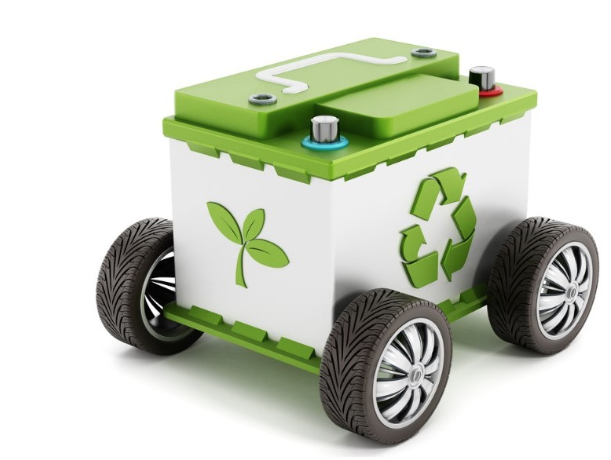Content Provided by Christian Brothers Automotive

You’ll have to replace a number of different parts of your car over time to keep it running. Brake pads will wear out and need replaced, oil will get dirty and need changed, and your battery will eventually lose the ability to hold a charge, meaning it’ll need to be replaced as well. Depending on where you live, what kind of car you have, and how often you drive it, you’ll need to replace your battery every two to five years or so. The bad news is, these batteries aren’t as simple as replacing the AAs in your TV remote and throwing the old ones out. The good news is, you can recycle your old car battery.
Car Batteries Have Recyclable Materials
Car batteries are constructed using a number of materials, the majority of which are recyclable. First, there’s the plastic. The housing batteries are constructed from, including their outer shell, lid, and even carrying handle (if it has one) are all constructed from plastic which can be melted down and re-used to create new batteries in the future. This brings the cost of batteries down and keeps non-biodegradable waste out of landfills, which means a better environment in the future.
Second, batteries themselves are constructed using lead grids and terminals. This lead will progressively degrade over time, but any remaining unharmed material can be melted down and formed into new grids. Likewise, the lead oxide which is created through the chemical reaction which allows batteries to work can also be chemically refined into pure lead once again, creating more material that can be used in batteries down the road.
Car Batteries Are Full of Toxic Acid
Modern lead-acid batteries (which are the most common type of battery used in a typical gas-powered car) use sulfuric acid as the electrolyte conductor. Sulfuric acid is extremely toxic, can create toxic fumes if handled improperly, and is a strong enough chemical to burn through iron. It needs to be handled with the utmost care.
However, recycling your battery can turn this toxic material into something beneficial for society. Sometimes the acid can be neutralized with a basic compound (a material which counteracts the acidic properties), which transforms it into water. Once the water is treated and tested, it can be released into sewer systems without any harmful impact to the environment. In other cases, sulfuric acid can be processed and converted into sodium sulfate, a commonly used ingredient in laundry detergent, glass, and textile manufacturing. Rather than sitting in a dump as toxic waste, this material can then be used to help make our lives better!
It’s Illegal to Dump Batteries in Some States
Roughly half of the states in the country have some sort of law mandating that single-use batteries need to be recycled, and in many cases, this includes lead-acid batteries like the one found in your car. For example, Texas prohibits the disposal of lead acid batteries in your normal trash, and instead requires you to recycle your battery at a battery retailer or recycling facility through a state-funded program. In Minnesota, it’s also illegal to throw your lead acid batteries away in your local trash, but instead the battery manufacturers themselves are required to implement and fund an approved collection program.
About Christian Brothers Automotive
Christian Brothers Automotive is your one-stop solution for all things car-battery related. When you’re having trouble with your car battery, we can provide you with a durable, long-lasting, high-performance replacement that keeps your car starting and running with ease for your complete peace of mind. All of our locations are also equipped to handle battery recycling, which means you can bring your old batteries to us and we’ll make sure it’s properly disposed of with an appropriate recycling service.
If you’re having battery trouble, call your local Christian Brothers Automotive or bring your vehicle by today!
Posted by, Christian Brothers Automotive
